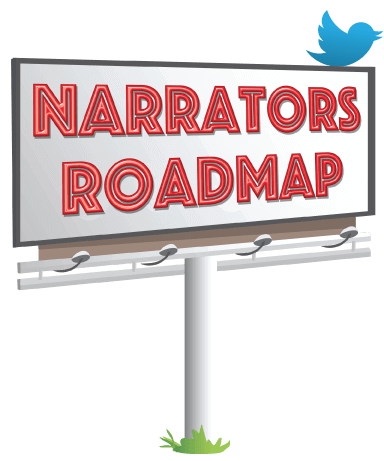Fiction books often feature characters with a wide variety of accents. It’s important to do your due diligence to determine if your capabilities are in best service of the text.
The book’s location(s) will dictate the type of accents needed, if any. The characters who live in the same place wouldn’t hear their accent differently, As narrator and dialect coach Joel Froomkin explains:
In general if the book takes place primarily where the language is native, you do not do a foreign accent because the characters are not speaking a foreign language to THEM. Hence, A Tale Of Two Cities isn’t narrated with a bunch of French accents. The foreign language itself is considered the non-accented neutral.
If the author states a character is from a certain place with a distinctive accent like London and doesn’t indicate the character has no accent, you should give that character an appropriate accent based on the location and the character’s socio-economic background and status.
However, if you can’t convincingly speak in the accent of the main character(s), you shouldn’t do the accent. The goal is to sound like a real person, not a caricature. Sustaining an accent throughout the book grows even more difficult if you have not lived there or at least had significant experience in speaking with the accent.
On the other hand, if you say you can do an accent, you need to do it WELL. You don’t need to be at the level of fooling a native speaker, but you do need to be respectful, convincing, and consistent.
Usually, hinting at the accent is enough to satisfy the listener. Barbara Rosenblat, who is known as the Meryl Streep of the audiobook world, wrote in her book Audiobook Narrator: The Art of Recording Audio Books:
Clarity is key…Your first responsibility is to be understood….
When I refer to “nuance”, I mean giving a good dollop of the flavor of the character so that you place your listeners firmly in the world you want to share with them without blowing them out of the room.
The resources on this page can help you hear accent traits and the musicality of the language, which is essential for a more authentic performance. Of course, listening to an audiobook from a native speaker certainly gets the musicality of the language into your mind! For instance, listening to David Tennant perform How to Train Your Dragon helped me perform a few lines of Scottish in one book.
Language repositories:
- The British Library’s free database of British Accents and Dialects has recordings representing different accents and dialects in England, Wales, Scotland and Northern Ireland. Specialty recordings, like British prisoners held in Germany during WWI, are found on this page.
- The International Dialects of English Archive (IDEA Dialects Archive) is a free site containing around 1500 sample recordings of native speakers from around the world speaking the same passages in English, often as a 2nd language.
- A regional US map and links to vocal repositories are included in this Lifehacker article. Of the sites linked in the article, linguist Rick Aschmann’s site discusses US and Canadian accents and is particularly useful because he catalogs YouTube clips with good examples.
Language apps/sofware with native speakers:
- Babbel Fee-based subscription
- Duolingo Free and paid services
- Fluenz One-time payment
- Mango Languages Paid subscription but may be available through a library
- Rosetta Stone
Your library also may have courses in popular languages produced by Berlitz, Living Language, and Pimsleur.
This KB article on pronunciation includes links to several sites with native pronunciations.
Radio Stations:
You can also listen to radio stations in the country to aid your musicality. I’ve found that WordRadioMap.com is a good choice because you can quickly pick a country and city from drop-down menus and then click on a station to start listening.
The Radio.Garden site lets you search for a station with text or by “spinning” the earth and clicking on a dot representing a station. Narrator Madeline Mrozek alerted me to this site, which also has an iPhone/Android app.
With some Google searches, you might find radio stations in other countries with programming in English. You can also search the Apple and Google app stores for other radio apps.
Movies:
Some narrators like to watch dubbed movies with sub-titles. Narrator Jennifer Blom offered this handy tip for Netflix users: Login to Netflix and go to this page. Select the language you want to see programs available in that language.
Other narrators have recommended the specific resources below for the accents listed.
Australian
- How to do an Australian accent with VCA Senior Lecturer Leith McPherson
- Joel Froomkin’s Australian Word Stress/Pronunciation List
British
- The Ask List of words from chapter 2 of Edith Skinner’s classic book Speak With Distinction includes essential words pronounced differently in American and British RP English.
Italian
Korean
- Kim’s Convenience (Netflix episodic series)
New Orleans
Polish
- Meryl Streep in Sophie’s Choice
- The PronunciationStudio.com blog (shared by narrator Hope Newhouse) can help you work backwards with 10 English Pronunciation Errors by Polish Speakers.
Queens/Bronx
Russian
- Jodie Comer in Killing Eve (BBC America episodic series available on Hulu)
Other resources on this topic:
- The PronunciationStudio.com blog has a number of articles with sound clips about types of regional British accents such as Received Placement and this article about differences between American and British English. You can search the blog for articles like the Polish one linked above that discuss mistakes native speakers of the language make in English. I saw French, Greek, Italian Japanese, Korean, Mandarin, Portuguese, Russian, Spanish, and Thai.
- Siiri Scott, head of Acting and Directory in the Department of Film, Television and Theatre at Notre Dame University, gave a presentation at APAC 2019 about creating dialects. Her slide deck is available on the APA site under Resources/APAC 2019 Presentations.
- You’re not limited to your local library’s resources. This article discusses benefits of obtaining a non-resident card for 1 or more other libraries.
- Dialect coaches and recording packages are listed in the Welcome Center.








